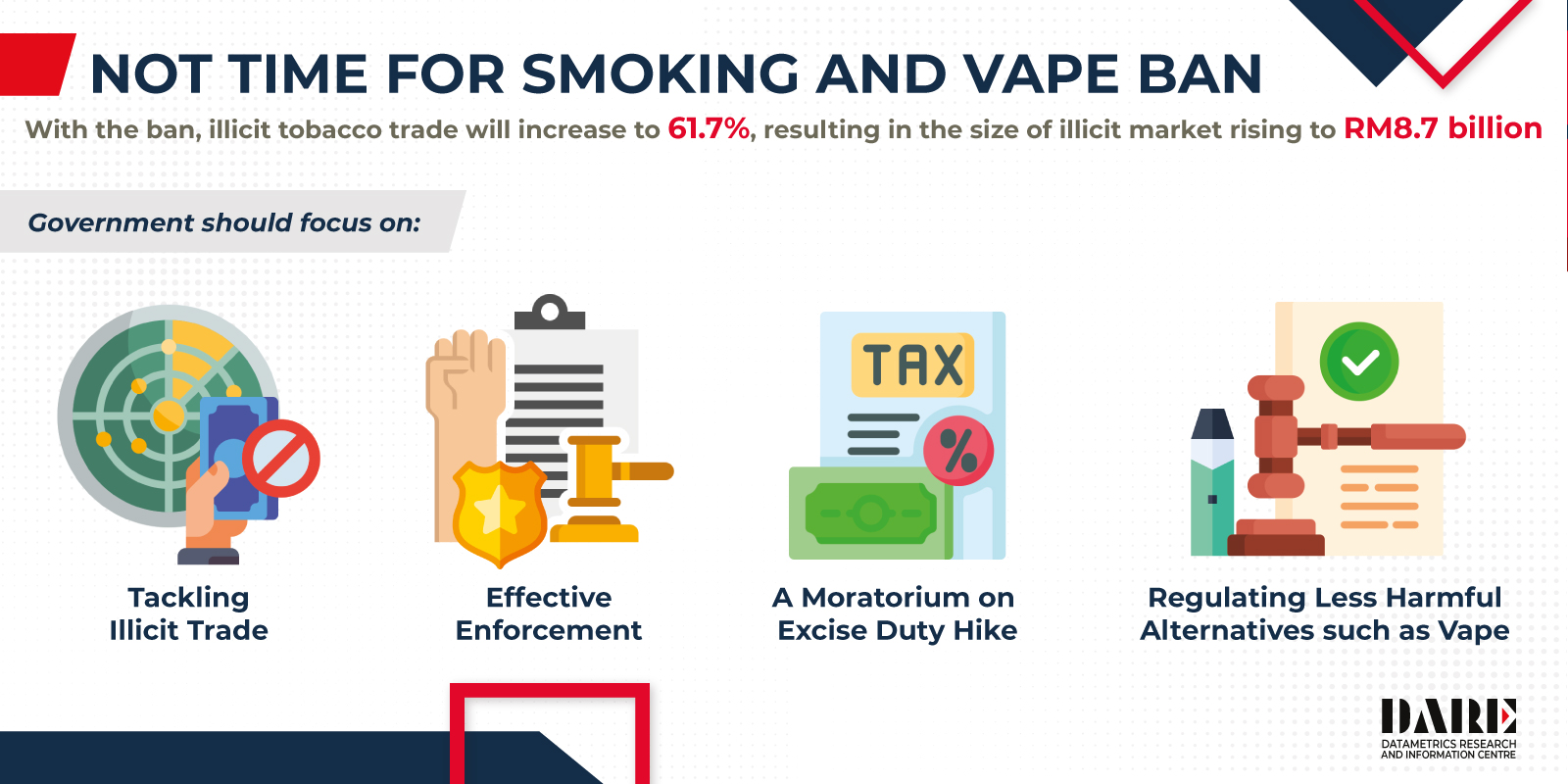AS the 15-19 age group cohort accounts for 7.7% of the tobacco use population, a generation end game (GEG) strategy pursued by the Health Ministry (MOH) will see illicit trade surge from 58.4% as of March 2022 to 61.7%, thus resulting in the illicit market size rising to RM8.7 bil.
These findings were shared by a non-governmental think-tank the Datametrics Research and Information Sdn Bhd (DARE) in its A Smoke-Free Malaysia report.
In a study carried out by its market research partner, The Green Zebra, it was found that 83% of Malaysians think that the country’s illegal cigarette trade will increase exponentially with the ban on the sale of cigarettes to those born after 2005.
“Banning cigarette sales will not work in reducing smoking prevalence. This move will not only lead to a rise in the illegal cigarette market to RM8.7 bil, thus benefiting criminal syndicates,” commented DARE’s managing director Pankaj Kumar.
“Malaysia simply does not have the same market dynamics as countries like New Zealand or Singapore which has a lower smoking prevalence and incidence of illicit trade of less than 11% and 14% respectively.”
“However, in a country like Malaysia where its smoking prevalence is more than 20% and its tobacco black market stands close to 60%, GEG is not a viable option,” he added.
According to Pankaj, New Zealand had prior to the introduction of its GEG policy undertaken a massive exercise to reduce the prevalence of smoking by helping smokers quit the habit via a tobacco harm reduction (THR) strategy which has been well-documented.
As a result, the country experienced its largest-ever decline in smoking incidences from 11.9% in 2020 to 9.4% in 2021.
Interestingly, two-thirds of the respondents in the market survey by The Green Zebra also acknowledged that vaping has helped them either quit smoking entirely or reduce their cigarette consumption.
Enforcement and price disparity
Moving forward, Pankaj said Malaysia must deploy the right strategies, including regulation, to achieve the standards set by countries like New Zealand or Singapore to reduce smoking prevalence and incidence of illicit trade.
“Products must be regulated to ensure that they are safe and secure, to ensure consumers are protected and are fully aware of the risk factors”. Pankaj explained.
“Reducing cigarette consumption with an effective THR public policy allows the Government to reduce the cost of treating illnesses and diseases caused by cigarettes. Malaysia has so much to gain by regulating vape in this country.”
On enforcement, Pankaj pointed out that while Government has designated five key ports as transhipment points for the trading of tobacco products under Budget 2021, this has not fully curbed smuggling activities.
“The Government needs to step up enforcement at these ports to ensure they act as pure transhipment hubs and not the point of entry for illicit trade,” he stressed.
“The Government also needs to step-up controls and enforcement of contrabands at various landing points on the coastal lines of the nation. There need to be concerted efforts – not only from the customs but also the navy – by deploying our vast seagoing vessels to tackle illicit trade.”
As for the implementation of the GEG policy, Pankaj said the Government should tackle other fundamental headwinds faced by the tobacco industry first.
“This includes not only enforcement and regulation for THR products but also a moratorium on excise duties for tobacco products to ensure the price disparity between legal cigarettes and illicit trades can be narrowed,” he added. – July 19, 2022









